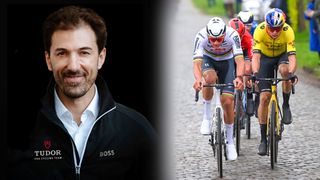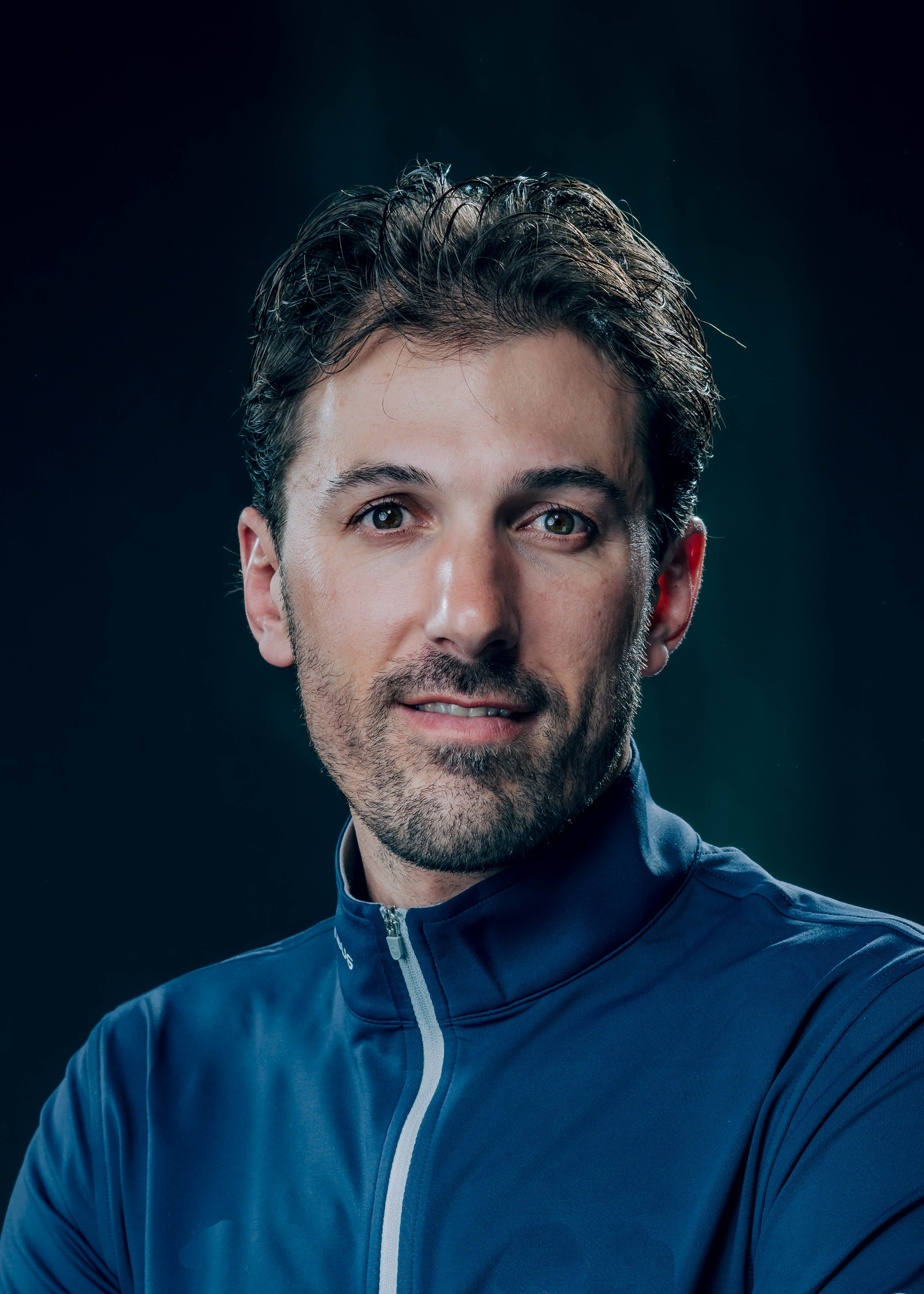Cancellara's Classics column: Don't overlook the mental aspect of the Van der Poel-Van Aert duel
Peerless Van der Poel triumphs over under-pressure Van Aert, though history shows nobody is unbeatable at Flanders and Roubaix


Friday's E3 Saxo Classic showed that we certainly weren't wrong to expect a battle between Mathieu van der Poel and Wout van Aert this Spring. Their duel was the main story of the race, and Mathieu came out on top again in the end, which will only add to the pressure on Wout before the Tour of Flanders.
Van Aert's crash on the Paterberg totally changed the race, of course, and it's understandable that it was the focus of a lot of analysis afterwards. With his cyclocross skill, he felt he could switch easily between the smooth gutter and the cobbles, but he ended up falling. I don't know if that was a mistake or just simple bad luck for Van Aert, but it was very costly.
It's interesting because it also highlighted a key difference for me between the Tour of Flanders and the other races in this part of the world. There are a lot more barriers on the route of the Ronde, and that means there's much more clarity about where you can ride and where you can't ride. A lot of the time, including on the Paterberg, it's not possible to ride in the gutter because of the barriers. The route is more 'stable,' and I'm in favour of that.
I was standing on the Tiegemberg in the finale, so I got a good close-up view of Van der Poel and Van Aert as they rode up the last climb of the day. I could see the fatigue weighing heavily on Van Aert's face at that point, and it's hard to say if that was because of the effort he had to make after the crash or if it was because he wasn't at his best after his recent altitude camp.
In either case, I think it's clear that there's huge pressure on Wout right now in this rivalry with Van der Poel. He hasn't won the Tour of Flanders or Paris-Roubaix yet, and there's all this expectation on him in Belgium and that's not easy to manage.
It's not just a question of whether Van der Poel is stronger or not. There's also a mental aspect that we can't overlook. When your confidence is high, when you're in your 'flow,' your confidence is higher, and these races feel easier. Legs and condition are one thing, but mental fatigue is a big factor in these races too. We can forget sometimes what a big difference the mental aspect can make here.

From that point of view, winning in Harelbeke was a big message from Van der Poel to his rivals for the rest of the Spring, because he didn't just demonstrate his strength, he also showcased his experience and his confidence in these races. When he goes, some riders might already be thinking about racing for second or third place.
We could see different riders trying to anticipate Van der Poel at different points, including Oier Lazkano. There was an explosion of attacks, it was quite chaotic at times. Then Mathieu came along and brought order to the chaos by attacking at the most important point and deciding the whole race on the Paterberg. He had the confidence and the experience to know exactly when to move, whereas a less experienced rider like Lazkano doesn't have that knowledge just yet, which is understandable.
Van der Poel is impressive because he has a very clear idea of what he wants to do in a race. He has a proper plan; he knows when he wants to attack and when he wants to follow. We saw that with the way he accelerated on the Taaienberg, which was a key moment. It was the point where the race really started, and Mathieu's effort set the tone for everything that followed.
That said, it's hard to read too much into the gap Van der Poel opened over Van Aert on the Taaienberg, simply because they are two different riders with two different styles. Mathieu is a guy who gets out of the saddle and just goes – bim, bam, boom – whereas Wout is a rider who likes to go up that kind of climb sitting down and making a longer, steadier acceleration.
The question mark I have over Van Aert is regarding his preparation. He has come in from a three-week altitude camp and he looks thin, but I just wonder if he is missing one or two races to get sharp again – and to get his confidence up too. Van der Poel only started his season at Milan-San Remo last weekend, but he was up to speed immediately. He continued that way at Harelbeke and I'm sure he'll impress at Gent-Wevelgem as well.
Still, Van Aert will have Dwars door Vlaanderen in midweek to help him get ready for the Tour of Flanders, and maybe his idea of skipping races like Tirreno-Adriatico will pay off in the end when we get to Flanders and Paris-Roubaix. Maybe this new way of doing things will work out.
He should have more teammates around him at those races, given that Wout wasn't the only Visma-Lease A Bike rider to have bad luck yesterday. And we also don't know what the situation will be with the weather either. Maybe that can be a factor in his favour.
And above all, we must remember that nobody is unbeatable in a Classic. You can always find ways to win a race against a strong rival – by anticipating him, by isolating him, by being inventive. It happened to me in the past in the Classics. There were times when I was super strong, but I got isolated. In the end, you're not a machine, you're only human.
Precious experience for Tudor Pro Cycling

I'm in Belgium at the moment with Tudor Pro Cycling Team and we had another big learning experience at E3 Harelbeke, and that's all part of our progression. We missed out on a result because Matteo Trentin had a problem with his cleats after he unclipped to avoid a small crash, and in the end, he had to change his shoe.
Matteo admitted that, mentally, he wasn't the same once he had to stop and chase back on after changing his shoe, and that's all part of racing in Belgium.
There's your physical condition on the one hand, but there's also that mental aspect I was talking about, and it can affect anyone. It's always a big battle, racing in Belgium.
Until the moment that happened, however, I think we raced in a proper way. We had people helping Matteo and Marius Mayrhofer, bringing them to the places where they needed to be. We saw Tudor on the front at important moments, and that's crucial for them to gain confidence for the things they will do in the future.
It was a pity for Matteo, of course, but it would have been much worse if he had crashed. He'll go again at Gent-Wevelgem on Sunday. We all will.
Harelbeke wasn't the best day for results, but we made another big step in terms of our experience. We're a team that's still developing, and that's what matters for us right now.
We've also had to make some late changes because of crashes and sickness, so we don't have the entire line-up we had planned to have for these races, but the boys are still doing well. Sometimes they're frustrated, but they're seeing the reality of these races. That's priceless for the future.
Join Cyclingnews for live coverage of the 2024 Spring Classics, and check in after each race for our full report, results, gallery, news and features.


Thank you for reading 5 articles in the past 30 days*
Join now for unlimited access
Enjoy your first month for just £1 / $1 / €1
*Read any 5 articles for free in each 30-day period, this automatically resets
After your trial you will be billed £4.99 $7.99 €5.99 per month, cancel anytime. Or sign up for one year for just £49 $79 €59

Join now for unlimited access
Try your first month for just £1 / $1 / €1
Fabian Cancellara is an ex-professional cyclist who raced from 2001 to 2016 for Mapei, Fassa Bortolo, CSC, and Trek. The Swiss rider was one of the top riders in the peloton during that time, picking up 88 victories during his storied career. Chief among them were three editions apiece of the Tour of Flanders and Paris-Roubaix, Milan-San Remo, eight stages of the Tour de France, four world time trial titles, and two Olympic time trial titles.
